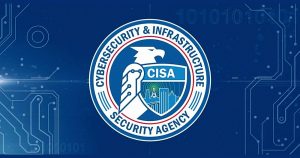Introduction
In today’s digital age, businesses and individuals heavily rely on computer networks to store and transmit sensitive information. However, this increased connectivity also brings the risk of cyber attacks. Hackers are constantly evolving their tactics to breach network security and gain unauthorized access to valuable data. Therefore, it has become paramount for organizations to invest in expert network penetration testing to identify vulnerabilities and protect their networks from potential threats. In this article, we will delve into the world of network penetration testing and provide you with a comprehensive guide to shield your network from cyber attacks effectively.
Understanding Network Penetration Testing
Network penetration testing, commonly known as ethical hacking, is a proactive approach to assess the security of a network infrastructure. It involves simulating real-world cyber attacks to identify weaknesses and vulnerabilities that malicious actors could exploit. Through this testing, security professionals can gain valuable insights into the network’s strengths and weaknesses, enabling them to take appropriate measures to bolster its defenses.
The Importance of Shielding Your Network
Securing Sensitive Data: Organizations often handle sensitive customer information, financial data, and intellectual property. A cyber attack can lead to severe data breaches, resulting in significant financial and reputational losses.
Maintaining Business Continuity: A successful cyber attack can disrupt business operations, leading to downtime and financial setbacks. Shielding your network helps ensure smooth business continuity.
Compliance Requirements: Many industries have specific regulatory requirements regarding data security. Penetration testing assists in meeting these compliance standards.
Protecting Customer Trust: Customers trust businesses with their data. Network penetration testing demonstrates a commitment to safeguarding customer information.
Types of Network Penetration Testing
External Testing: Evaluates the network’s security from an external perspective, mimicking a hacker trying to infiltrate the network from the outside.
Internal Testing: Assesses the network’s vulnerabilities from an internal perspective, simulating an attack from within the organization.
Blind Testing: Also known as “black box” testing, this type of testing provides minimal information to the ethical hackers, imitating a scenario where the attackers have limited knowledge about the network.
Double-Blind Testing: The network’s defenders and the ethical hackers are unaware of each other’s activities, making the simulation more realistic.
Targeted Testing: Focuses on specific areas of the network, such as critical systems or departments, to evaluate their resilience against attacks.
Compliance-Based Testing: Ensures that the network meets industry-specific compliance standards.
Steps Involved in Network Penetration Testing
Pre-Engagement Interactions: Understanding the client’s requirements, defining the scope, and planning the testing approach.
Reconnaissance: Gathering information about the network, its systems, and potential entry points.
Scanning: Using automated tools to identify open ports, services, and vulnerabilities.
Gaining Access: Attempting to exploit the identified vulnerabilities to gain access to the network.
Maintaining Access: After gaining access, ethical hackers try to maintain their presence to explore deeper into the network.
Analysis and Reporting: A detailed report is prepared, highlighting the vulnerabilities and providing recommendations for remediation.
Common Network Vulnerabilities
Weak Passwords: Simple or default passwords make it easier for attackers to gain unauthorized access.
Outdated Software: Running outdated software with known vulnerabilities increases the risk of exploitation.
Unpatched Systems: Failing to apply security patches leaves the network susceptible to attacks.
Phishing Attacks: Employees falling victim to phishing emails can compromise the network’s security.
Insufficient Firewall Configuration: Poorly configured firewalls may allow unauthorized traffic.
Lack of Encryption: Unencrypted data transmissions are vulnerable to interception.
Social Engineering: Manipulating individuals to divulge sensitive information.
The Role of Ethical Hackers
Ethical hackers are skilled professionals who conduct network penetration testing with the goal of improving security rather than causing harm. They leverage their knowledge of hacker tactics to identify vulnerabilities and help organizations implement robust security measures.
How to Choose Expert Network Penetration Testing Services
Experience and Expertise: Look for providers with a proven track record and a team of certified professionals.
Comprehensive Testing: Ensure that the testing covers a wide range of vulnerabilities and attack scenarios.
Customized Approach: Each network is unique, so the testing should be tailored to your organization’s specific needs.
In-Depth Reporting: The testing report should be detailed, providing clear insights and remediation recommendations.
Industry Reputation: Check reviews and testimonials from previous clients to gauge the provider’s reputation.
Post-Testing Support: Good penetration testing services offer post-testing support to help address any issues that arise.
Frequently Asked Questions (FAQs)
FAQ 1: What is network penetration testing?
Answer: Network penetration testing is a proactive cybersecurity practice that involves simulating real-world attacks to assess a network’s security and identify vulnerabilities.
FAQ 2: Why is network penetration testing essential?
Answer: Network penetration testing is crucial to identify weaknesses in a network’s security and protect it from potential cyber attacks, safeguarding sensitive data and ensuring business continuity.
FAQ 3: How often should network penetration testing be performed?
Answer: Network penetration testing should be conducted at least annually or whenever significant changes are made to the network’s infrastructure.
FAQ 4: Is network penetration testing legal?
Answer: Yes, network penetration testing is legal as long as it is conducted with proper authorization from the network owner.
FAQ 5: Can network penetration testing cause network disruptions?
Answer: Ethical hackers conduct penetration testing in a controlled environment to avoid disruptions. However, there might be temporary disturbances during the testing process.
FAQ 6: What should I do after receiving the penetration testing report?
Answer: After receiving the report, prioritize addressing the identified vulnerabilities and implement the recommended security measures.
Conclusion
Shielding your network from cyber attacks is a critical responsibility in the digital age. Expert network penetration testing provides valuable insights into your network’s security and empowers you to fortify its defenses. By identifying and addressing vulnerabilities proactively, you can ensure the safety of sensitive data and maintain the trust of your customers. Remember, investing in network penetration testing is an investment in your organization’s security and future.



